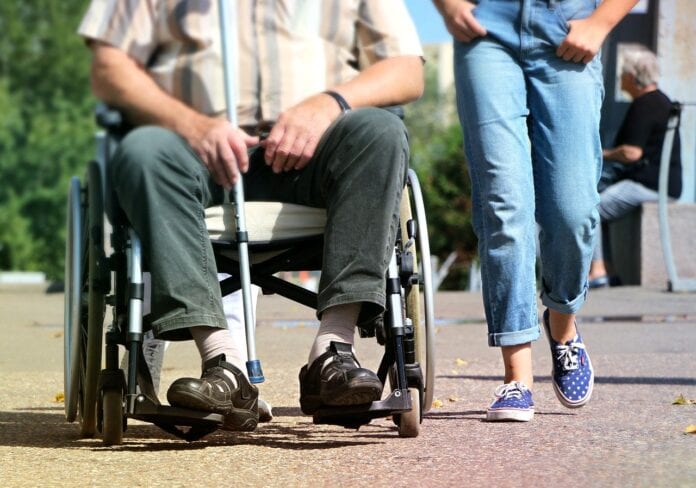If a relative is born with a disability or develops this later in life due to an accident or illness, it’s important to give them the right support so they can live independently and comfortably. If their disability has happened later in life it might be overwhelming at first for you all to adjust to their new lifestyle requirements, but you must do what you can to make things easier and back to a normal routine. Here are five ways you can support a disabled relative.
1. Home Modifications
If a relative with a disability lives with you, then you should consider making some modifications to your house to make it more accessible to them. Having exterior ramps installed for wheelchair access to the house is a good idea, as are having support bars and lowering kitchen worktops. Widening doorways is another modification that might have to be made to your home, and you should think about having a domestic lift installed if there is no room for a bedroom on the ground floor. Terry Lifts can offer a range of domestic lifts that are ideal for wheelchair use and advice you on what would work best for your home.
2. Counselling Service
If your relative has recently become disabled due to an accident or illness, they might be struggling to come to terms with their new situation. If this appears to be the case, perhaps looking into and suggesting some counselling could be a good idea. Talking through their emotions and thoughts with a professional counsellor could help them adjust to their new lifestyle, and help them start having a more positive outlook. You might also be interested in some counselling yourself if you have recently become a carer and are feeling overwhelmed.
3. Offer to do Their Shopping
It’s important to make sure your relative maintains as much independence as possible, but there might be some things they are no longer able to do alone due to their limited mobility or other issues. Shopping for groceries and other things might be something they can’t do by themselves anymore, and they may need you to drive them to the store or carry their bags for them. Offering to help them with this or other tasks will be appreciated, but never make assumptions – ask them if they would like you to first make sure they are comfortable with you doing this for them.
4. Hire a Carer
If your relative needs more hands-on care that you cannot provide yourself, you must hire a professional carer to help them. Their doctor or the hospital might organise this for you, or you can ask them for further advice on hiring a private carer if you would prefer to do this/they can’t send a carer to you. If you’re going to hire a private carer, make sure your relative is involved in this process so they are with someone they’re comfortable with and trust.
5. Respect Their Independence and Personal Space
Finally, just because your relative may now have limited mobility or other issues does not mean they can’t live an independent, happy, and healthy life. While you might be trying to look after them and be helpful, remember to respect your relative’s personal space and never make assumptions about what they might need assistance with.
If you’re having to care for a disabled relative or friend, remember these five ways to support them while encouraging them to maintain as much independence as possible.
Help keep news FREE for our readers
Supporting your local community newspaper/online news outlet is crucial now more than ever. If you believe in independent journalism, then consider making a valuable contribution by making a one-time or monthly donation. We operate in rural areas where providing unbiased news can be challenging. Read More About Supporting The West Wales Chronicle






















